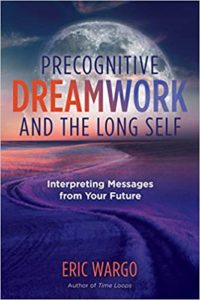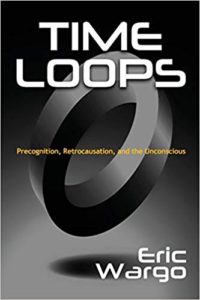Bigfoot, UFOs, and the Right to Bear Experience
I’ve been writing here lately about UFOs, which is something of a departure for me. But for a long time I’ve been interested in things Fortean—amazing or paranormal experiences, mysticism, the occult and the paranormal, or fringe-science topics like extraterrestrials and Bigfoot—in short, things that transcend the humdrum and everyday. Part of the reason is, I’m interested in what it means when someone witnesses something (like a flying saucer or a tall hairy hominid) “with their own eyes.” Those of a Fortean bent are necessarily interested in, and are committed philosophically to, the value and validity of individual experience.
Individual experience is, in a very fundamental way, opposed to science, and the scientific method. The latter is a set of processes whereby the individual, subjective experiencer, the human, is removed as much as possible from the gathering of knowledge about the world. This presents a problem for Forteans who also, like me, consider themselves scientists.
I think this conflict is worth confronting, because it may shed light on some of the cultural fascination with Fortean subjects. I’ve watched a lot of documentaries about Bigfoot and UFOs in the last few years, and the antagonism between science and experience can be seen clearly in all of them. One of the universal elements in such films is the token skeptic representing “the Scientific Establishment” (as Peter Graves puts it in my favorite Bigfoot film, The Mysterious Monsters). This character is the one who throws cold water on our belief; he is invariably portrayed as the Enemy, the antagonist, the stubborn authority who refuses to accept the weight of firsthand accounts. In debunking the phenomenon in question, he’ll point out the susceptibility of the mind to tricks of the imagination, to social fads, and to wishful thinking. In other words, this person distrusts personal experience, no matter how seemingly sane or sober.
This “skeptic” character clues us in to the appeal of Bigfoot and other “paranormal” phenomena. It is not simply that people wish for Bigfoot or UFOs to be real in order to give some meaning to their lives, or because they want something to believe in. (Although, sure, it’s partly that—we all, on some level, “want to believe.”) The other part is this: We–we Forteans, we back-woods Rednecks, we ordinary people–are rooting for Bigfoot or for UFOs to be real because these things represent the hope, the real possibility, that science could just for once lose the epistemological wrestling match against personal experience.
The “American religion,” as Harold Bloom has observed, is essentially Gnostic, based on the fundamental value of personal experience. This “religion” is visible in all our current debates over things like global warming and Creationism. This puts many Forteans who, like me, are basically rational liberal agnostics in strange company. What rational liberal agnostic Forteans have in common with conservative American Christians is a resentment of the meta-message of science: that the testimony of our eyes, and of common sense, is invalid.
No one likes to be told that the sense they make of the world and their lives is mistaken—it is invalidating in the extreme—and yet “you are wrong” is the tacit signal sent by most science, from Galileo right down to modern neuroimaging. A scientist telling me that my worldview is inaccurate or biased, that what my parents taught me at their knee is untrue, and that what I may have seen with my own eyes on a desolate road or over a cornfield is an error, is not going to win me as a friend.
This is why I cringe every time an eminent liberal humanist scientist like Richard Dawkins writes a book about why God doesn’t exist. Such prophets of science have fallen prey to the delusion that humans are governed principally by reason, and that they persist in holding unreasonable beliefs simply because they have not been exposed to the scientific evidence. But people will go to great lengths to defend their right to bear their experience. Put yourself in the shoes of someone raised in a conservative Christian community: If this apostle of science seems to belong to a culture that I am alienated from and that represents values I have been brought up to abhor, his rational arguments will only galvanize my own knee-jerk anti-intellectualism, my anti-scientism.
I use the phrase “right to bear experience” advisedly, because there is some way in which the gun debate in America directly reflects this basic rift between science and experience. Arguments against gun ownership tend to follow the same lines, and to preach to the same choir, as arguments for evolution or global warming; they point to evidence as if facts, statistics, trends, etc. were enough—that you just have to make people wake up and smell the data. Proponents of science are unaware that rational scientific discourse conjures the image of someone who “knows better” coming into one’s home and snatching away one’s ability to construct one’s own worldview out what one’s elders have tought one at their knees and, most importantly, what one has seen with one’s own eyes. It is exactly akin to the Redneck bogeyman fantasy of a liberal bureaucrat coming into one’s home and taking away one’s firearm.
The individual is sovereign in our hearts, whether we consider ourselves liberal humanists or conservative Fundamentalists. Scientists and writers who seek to popularize science would do well to recognize this fact. Though I consider myself a scientist, I hate how offensive and tactless science often is. I wish it would learn some manners. And I wish scientists would come up with some new way of talking that accepted and honored the sovereignty of personal experience as something more than simply a negligible statistic (the n of 1). Because the fact of the matter is that no one, not even a scientist, can receive science or scientific data except via a subjective, biased, personal experience. We live in our experience, and there is, in the end, no escaping it.
The point of such a recognition would not be to reawaken the whole early-1990s constructivist-deconstructionist move, catching science in unproductive loops of navel gazing and self-critique, but rather to make science more polite, more tactful, or more humane. Science will be more successful, the more it learns to win friends and influence ordinary people. In the meanwhile, scientists will continue to be cast as the Enemy in documentaries about UFOs and Bigfoot and all the other things that are not dreamt of in their philosophy.




Very perceptive. I never thought of it this way. Subjectivity is not dispensable, of course, but science does insist that it be validated by others’ experience (via repeatable measurements) before it’s allowed to be provisionally true, or at least approximately true.